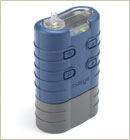Haztek provides dust and silica monitoring and assessment services for manufacturing, construction, mining and manufacturing industries.
Dust and silica monitoring is undertaken to determine the concentrations of dust or particulates that workers breathes while work is undertaken. Monitoring for dust, silica or other particulates may be required as part of the assessment of risk where it is necessary to obtain a quantitative estimate of exposure or to determine the effectiveness of measures introduced to control exposure. Dust Monitoring involves the use of valid and suitable techniques to derive a quantitative estimate of the exposure of employees.
Dust Monitoring Approach
Dust monitoring services are provided by our qualified and experienced occupational hygienists. Emphasis is placed on ensuring appropriate consultation is undertaken with our clients to ensure that the strategies developed are practical and are readily accepted by operational workers.
Our dust monitoring services include:
- Inhalable Dust Monitoring
- Respirable Dust Monitoring
- Respirable Crystalline Silica Montoring
- Diesel Particulate Matter Monitoring
Inhalable Dust Monitoring
Monitoring will be conducted in accordance with the requirements of AS 3640-2009: Workplace Atmospheres – Method for sampling and gravimetric determination of inhalable dust. Real-time dust monitoring utilising a Dust Trak is used to identifying high exposure tasks.
Respirable Dust and Crystalline Silica Monitoring
Monitoring for respirable dust and crystalline silica will be conducted in accordance with the requirements of AS 2985-2009 Workplace atmospheres – Method for sampling and gravimetric determination of respirable dust. Sample analysis for respirable crystalline silica is conducted by a NATA accredited laboratory using x-ray diffraction. To achieve an acceptable detection limit for respirable crystalline silica the sampling period should be at least 8 hours. Real-time monitoring utilising a Dust Trak is used to identifying high exposure tasks.
Diesel Particulate Matter Monitoring
Sampling for DPM will be conducted in accordance with NIOSH Manual of Analytical Methods (NMAM 5040), Fourth Edition, Method Elemental Carbon (Diesel Particulate) 5040. This method involves capturing the submicron fraction of the workplace aerosol and then determining the amount of the core component of diesel particulate (elemental carbon; EC). Sample analysis on the captured particulate will be conducted by Coal Services Pty Ltd using Thermal Optical Organic Carbon/Elemental Carbon following the principles of NIOSH Method 5040.
For information on health risk assessments click here.
For further information on how we can assist you with dust monitoring services call our office or use our contacts page to forward a request for further information.











